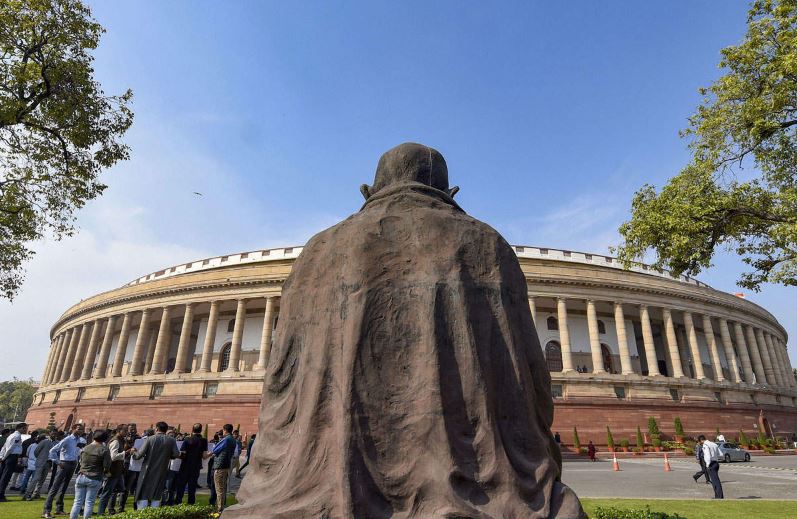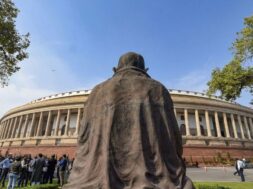
Guru Prakash writes on BJP worker’s death: Don’t protest in Patna
(Guru Prakash)
Dissent is the essence of democracy. “Let us agree to disagree” is the foundational thought of our Constitution. Men and women who made supreme sacrifices for the nation fought for the similar ideals of freedom of thought. Bihar is regarded as the land where the idea of democracy emerged for the first time.
As the BJP was leading a peaceful march towards the Bihar Vidhan Sabha, state-sponsored violence was unleashed on the protesters. It is difficult to recall such institutional violence against a political protest in recent history. Only instances from colonial rule come to mind — Lala Lajpat Rai, a leading voice of the freedom struggle, was killed during a procession against the oppressive British regime.
Nitish Kumar often claims to be the inheritor of Jayaprakash Narayan’s legacy. JP, as he is popularly known, stood as a beacon of hope during the Emergency. JP was put behind bars by a dictatorial Congress regime. The so-called political successors of JP did not even blink once before compromising with the Congress party, which is representative of anything but democracy. Late journalist Kuldip Nayar observed in his autobiography, Beyond the Lines: “Jayaprakash Narayan was the only voice that caught attention. He was not a member of Parliament and stayed mostly in Patna, but whenever he spoke people took notice of him. He believed that time was favourable to awaken the people to the values and principles which he said the Congress was destroying and giving India the imprint of Indira Gandhi’s authoritarian rule.” JP stood for values that Nitish Kumar is bent on compromising in his lust for power.
Death of Democracy in the land of democracy.
Link : https://t.co/Zz7fsK6lRW pic.twitter.com/gD1SNXLL0M
— Dr. Guru Prakash Paswan (@IGuruPrakash) July 15, 2023
This week, the streets of Patna and the historical Gandhi Maidan that once challenged a dictatorial regime became a witness to state tyranny. Vijay Singh, who was the BJP’s general secretary from Jehanabad, is an unfortunate victim of this state violence. Accountability for his death must be fixed. As a participant in multiple protests in my career, I have never seen such use of force by the state on innocent protesters. There are police manuals that suggest the degree of retaliation in cases of provocation during the protests. Not one stone was thrown, no glass was shattered. The reason behind this violence may remain incomprehensible. But the pain of Singh’s family members is palpable.
Singh came to Patna to exercise his constitutional right as a political worker. Rarely do we spare a thought for those who engage in the practice of political democracy. However, commenting on the state of Indian democracy from the ivory towers of think tanks in Delhi and Washington is in vogue within academia. Books are written, seminars are curated and special editions by global publications are being brought out in pursuance of Indian democracy.
Billionaires with chequered pasts have publicly expressed interest in the affairs of Indian democracy. Questions about the silence of external Western powers are being raised by the leaders of opposition parties. Yet, not a single tweet expressing solace was put out by this brigade that claims to be a custodian of the constitutional ethos in the aftermath of violence in non-BJP-ruled states. The missing conversation about Bihar and Bengal from the mainstream intellectual discourse no longer astonishes. The selectivity of causes is a disservice to public life.
Regardless, India remains a robust democracy, a growing economy and has an increasingly inclusive government at the Centre. Under its leadership, marginalised sections are becoming major stakeholders in the India story. Protests will remain the ornament of our democracy and shall continue to act as a reminder to those who wishfully think that they can suppress the voices of ground-level leaders like Vijay Singh. It is, therefore, pertinent to remember what B R Ambedkar said about the idea of democracy. It is “a form and a method of government whereby revolutionary changes in the economic and social life of the people are brought about without bloodshed”.
The writer is national spokesperson of the BJP













